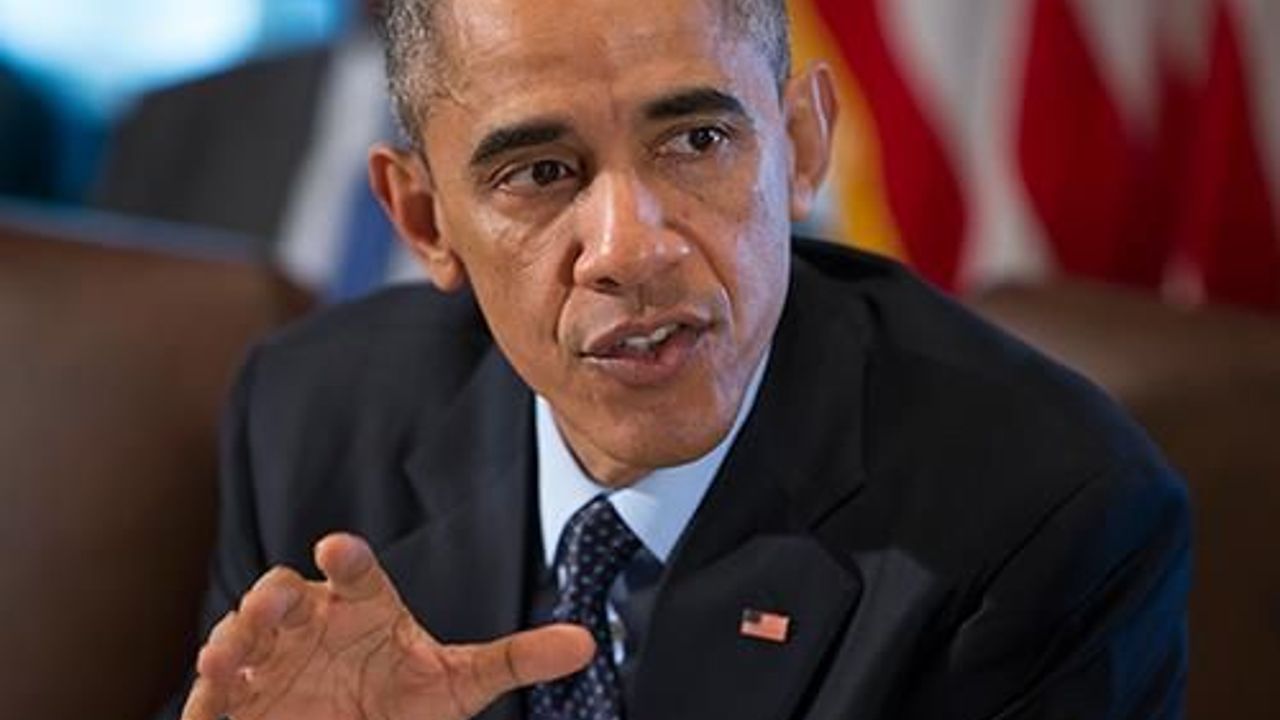US President Obama: Troop surge in Iraq is new phase in ISIL war
World |
U.S. President says troops will not engage in combat, and close air support for Iraqi army will continue.

Font Size:
U.S. President Barack Obama announced on Sunday the deployment of 1,500 more troops to Iraq in what he termed a "new phase" in the battle against the Islamic State for Iraq and the Levant.
Together with the deployment last week, the number of U.S. troops being sent to Iraq totalled 3,000.
"What it signals is a new phase, What we knew was that phase one was getting an Iraqi government that was inclusive and credible, and we now have done that. And so now what we've done is, rather than just try to halt ISIL's momentum, we're now in a position to start going on some offense," Obama said, speaking on the CBS news program "Face the Nation."
U.S. has been conducting airstrikes on ISIL targets in Iraq as a support to Iraqi and Kurdish forces since August, but little progress has been made in dislodging ISIL from the territories it captured except for some strategic points such as Mosul dam and Haditha dam in northern Iraq.
However, the U.S. President termed the airstikes to have been very effective in "slowing the advance that they were making."
Obama pointed out that ISIL is an extremist group of a sort not seen before, as it combines terrorist tactics with on-the-ground capabilities. He noted that Saddam Hussein's former military commanders have also joined them.
Still the President insisted the U.S. troops would not return to Iraq to fight the terror group.
"What hasn't changed," he said "is that our troops are not engaged in combat."
He also noted that U.S. troops work in four training centers with U.S.-led coalition members to help Iraqi recruits, and the Sunni tribes that are still resisting ISIL, with training, equipping, strategy and logistics.
"We will provide them close air support once they are prepared to start going on the offensive against ISIL. But what we will not be doing is having our troops do the fighting," he added.
The former Iraqi Prime Minister Nouri al-Maliki, a Shia leader, maintained a sectarian policy that did not include all segments of the Iraqi society particularly Sunnis. The consequence was that ISIL gained many adherents in the country.
Anadolu Agency
Together with the deployment last week, the number of U.S. troops being sent to Iraq totalled 3,000.
"What it signals is a new phase, What we knew was that phase one was getting an Iraqi government that was inclusive and credible, and we now have done that. And so now what we've done is, rather than just try to halt ISIL's momentum, we're now in a position to start going on some offense," Obama said, speaking on the CBS news program "Face the Nation."
U.S. has been conducting airstrikes on ISIL targets in Iraq as a support to Iraqi and Kurdish forces since August, but little progress has been made in dislodging ISIL from the territories it captured except for some strategic points such as Mosul dam and Haditha dam in northern Iraq.
However, the U.S. President termed the airstikes to have been very effective in "slowing the advance that they were making."
Obama pointed out that ISIL is an extremist group of a sort not seen before, as it combines terrorist tactics with on-the-ground capabilities. He noted that Saddam Hussein's former military commanders have also joined them.
Still the President insisted the U.S. troops would not return to Iraq to fight the terror group.
"What hasn't changed," he said "is that our troops are not engaged in combat."
He also noted that U.S. troops work in four training centers with U.S.-led coalition members to help Iraqi recruits, and the Sunni tribes that are still resisting ISIL, with training, equipping, strategy and logistics.
"We will provide them close air support once they are prepared to start going on the offensive against ISIL. But what we will not be doing is having our troops do the fighting," he added.
The former Iraqi Prime Minister Nouri al-Maliki, a Shia leader, maintained a sectarian policy that did not include all segments of the Iraqi society particularly Sunnis. The consequence was that ISIL gained many adherents in the country.
Anadolu Agency
Similar News
Video News

WORLD
26 Mart 2024 - 11:18
Photo News






